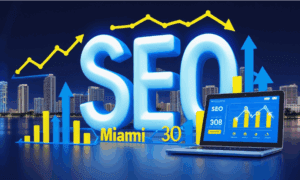Starting an e-commerce business can be an exciting and rewarding journey, but choosing the right platform is critical to your success. Finding the ideal platform can be difficult because of the specific criteria and the range of options. Also, because technology is continually evolving, you must stay up to date with new developments to ensure that you use the most recent eCommerce platform.
You get to decide the name of your firm, design the logo and branding, and develop the website. It’s easy to focus on your immediate needs, but it’s also important to think about your company’s long-term objectives and the additional tools you’ll need.
In this blog, we’ll discuss the best e-commerce platforms of 2023 and how you can choose the right one for your business.
The best e-commerce platforms:
- Shopify: One of the most renowned e-commerce platforms, Shopify is renowned for its usability and rich feature set. You can quickly set up an online store, control your inventory, and take payments with Shopify.
These are some essential qualities to take into account:
Secure checkout, easy app integration, a wide variety of payment options, sophisticated analytics, inventory tracking, shipping, tax management tools, round-the-clock customer support, and the ability to customise the store with themes, images, logos, fonts, and other elements are just a few of the features offered by this merchant.
Pros
- It is scalable
- has a user-friendly dashboard
- It naked it easier to optimize your websites for search engine (SEO)
- It provides limitless storage, enabling you to list numerous products in your store.
Cons
- The cost of subscription plans is somewhat high.
- Some sophisticated features, like abandoned cart recovery, call for extra apps, raising the price of setting up a Shopify business.
- And i the apps aren’t able to solve your problem then you might have to go and look out for a developer who might charge a hefty amount.
The popularity of this platform has also given rise to a lot of developers offering shopify stores for sale in order to make it further easy for beginners and allow them to do what they do best.
- WooCommerce: WooCommerce is a free, open-source platform that is built on top of WordPress. It’s a great option for businesses looking for a customizable and flexible platform.
Here are some characteristics to consider:
hundreds of store customization extensions and plugins, numerous payment gateways, inventory management, delivery choices, and features for product reviews
Pros
- gives you access to Automattic’s technical support and lets you list an infinite number of goods.
- Gives access to several payment channels, automated taxes, and unlimited storage capacity.
Cons
- is complicated; depending on the size and scope of your store, the many settings and options may be overwhelming to you.
- Includes some pricey third-party extensions, so make sure to look into your alternatives before buying any add-ons.
- BigCommerce: A cloud-based e-commerce platform called BigCommerce provides a variety of functions, such as inventory management, payment processing, and mobile optimization.
Also, it has a number of features, such as:
Product administration, website personalization, distinctive domains, client product reviews, cart abandonment recovery, product change, and comprehensive reporting tools.
Pros
- Provides limitless storage, so companies never have to worry about running out of room for their items.
- It can support upto a whopping 5,00,000 products maing it highly suitable for stores planning to sell a large variety of products.
Cons
- The number of free themes available are limited and for anything more than that you will have to ping your designer.
- Magento: Magento is a powerful e-commerce platform that is perfect for companies with complex requirements. For companies looking for a scalable platform that can expand along with their business, it’s a fantastic choice.
Magento is a great platform for small businesses looking for an efficient, user-friendly, and scalable eCommerce solution. Magento offers total support for selling products and services across a variety of channels, such as websites, mobile devices, real-world stores, and even social media.
It has a lot of characteristics, such as:
managing many storefronts, a catalogue, orders, clients, a content management system, and mobile commerce.
Pros
- The fact that it supports many languages and currencies makes it a fantastic option for companies that cater to international clients.
- Provides a wide range of plugins and extensions to aid you in maximizing the efficiency of your store.
- It is SEO-friendly, making it simpler to boost the exposure of your store in search engine results.
Cons
- need a large investment to get up and running correctly.
- Utilizing Magento has a significant learning curve due to the platform’s complexity.
- Due to its prominence, you must take further precautions to protect your store from these dangers.
- Salesforce Commerce Cloud: Salesforce Commerce Cloud is a cloud-based platform that is designed for enterprise-level businesses. It offers a wide range of features, including personalization, omnichannel capabilities, and advanced analytics.
- Wix: Wix is a website builder that also offers e-commerce capabilities. It’s an excellent option for businesses looking for an easy-to-use platform that can help them get started quickly.
Wix offers small business owners a drag-and-drop interface that makes creating an online store from the start simple. Powerful customization tools are also included to give your store a distinctive, polished appearance.
Here are a few logical characteristics to check for:
tools for developing websites, effective marketing tools like email campaigns, the ability to collect payments, and a vast selection of professionally created themes
Pros
- Allows an unlimited number of products to be displayed and offers limitless storage
- offers free designs and templates
- supports a variety of languages
- is fully connected with Google Shopping and PayPal to allow you to swiftly and securely accept payments.
Cons
- Does not provide as much customization as some of the more sophisticated eCommerce platforms.
- Because of the somewhat higher transaction costs compared to some of its rivals, it could be more expensive for firms that process numerous payments.
When choosing an e-commerce platform, it’s important to consider your business needs, budget, and technical expertise. Consider the features you need, the scalability of the platform, and the level of support you’ll receive. You can also read reviews, compare pricing, and try out free trials to help you make the best decision.
Conclusion:
The e-commerce platform you choose will have a significant impact on your business success. By considering your business needs and comparing the best e-commerce platforms of 2023, you can choose the right one for your business and take your e-commerce journey to the next level!



































